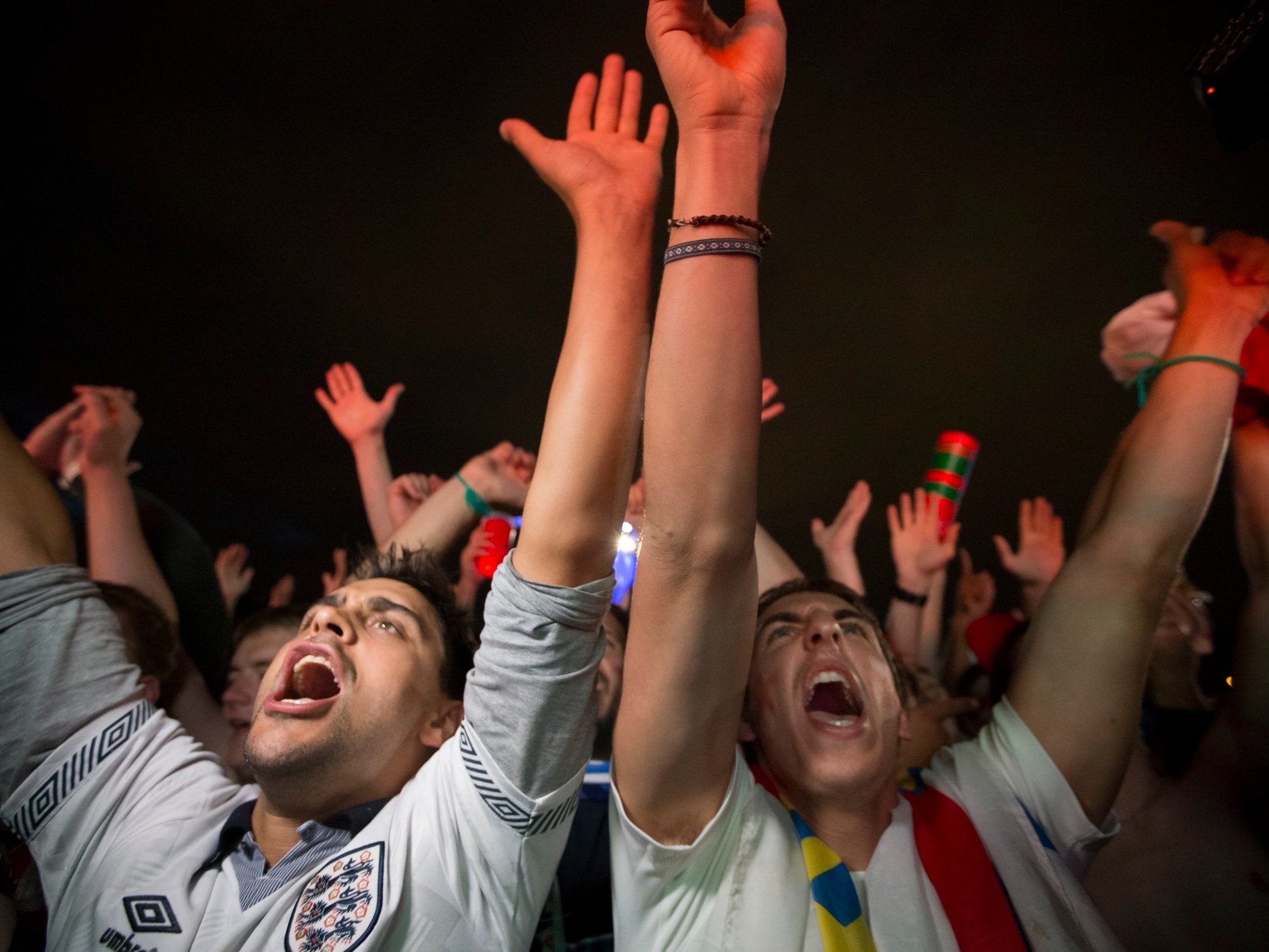Why the World Cup is bad for your finances
From spending sprees to stock market slumps, there are some surprising effects of football fever

Unless you’ve been in some sort of coma, you’ll know that this week the England football team snatched victory from the jaws of a draw to propel them through to the next round of the World Cup.
And while one in ten people may have claimed they’d prefer a World Cup win over a pay rise, there’s no doubting that this summer’s sunshine-filled euphoria is having an effect on our attitudes to saving and spending.
“Research in psychology documents that important sporting events like the World Cup can cultivate ‘sentiment’, in other words strong feelings of happiness or sadness,” says Constantinos Antoniou, associate professor of finance and behavioural science, at Warwick Business School. “Happy people become optimistic about the future, and sad people become pessimistic.
“World Cup-related sentiment affects the way investors view the prospects of the economy.
“In the trading day that follows a loss in the elimination stage of a World Cup the stock market of the losing country falls by about 0.5 per cent. The effect is larger for countries where football is more important.”
Your win is my win
But why is there such a close tie in the first place?
Jeff Henriksen, founder and managing partner of behavioural economics-based hedge fund Thorpe Abbotts Capital, says: “There’s evidence that suggests sports fans link the success or failure of their sports team to their own success or failure and experience similar emotions in this regard. The outcome of a big game, then, can have a powerful effect on things like confidence and even dopamine levels in your brain.”
It’s a well-established link too. Henriksen cites one study from American psychologist and marketing professor Robert Cialdini back in the 1970s that showed a strong link between the success of American universities’ college football teams and the desire among their students to associate themselves with the team.
“Fans’ own images are at stake in these competitions, and the success or failure of the team is essentially viewed by fans as their own success or failure. Your personal image is therefore at risk in these contests,” adds Henriksen.
“So, if it is you, not just your team, who is out there winning, then it is you who becomes filled with confidence after a victory, almost as if you had won yourself. That confidence manifests itself in many behaviours. Spending is one of them. The more success the England football team has, the more confident its fans will be, the more social, the more outgoing – all things that increase spending levels.”
Indeed, research from Lloyds Bank which looked back over the competition since 1990 suggests countries that have enjoyed a successful World Cup campaign see consumer spending grow by an average of 4.5 per cent among semi-finalists for a year after the tournament. That’s around 1.2 percentage points more than the average rise in spending the year before the competition.
The largest boost came after US 94 when consumer spending grew by 10.7 per cent in the year after the final, having grown by 8.6 per cent in the year before.
Profile of a World Cup spender
“Increased spending during the World Cup generally comes from three distinct types of consumer,” says Cheryl Gordon, a senior lecturer in retail management at the University of Central Lancashire.
“There are the diehard fans, those that follow the whole tournament and centre social events around watching the matches, who invest in technology and home entertainment systems to improve the game-watching experience.
“Fair-weather fans, who become more interested when England do well, will join the diehard fans in driving the night-time economy by visiting more pubs and bars to watch the games. This leaves those with little interest in the tournament to indulge in online retail therapy to entertain themselves during the match.”
Even this last group can have a sizeable impact though. One estimate suggests than 4 million Brits will shop on their smartphones while watching the 2018 World Cup in an effort to relieve the boredom.
“As the nation continues to become gripped by England’s successes, it is estimated that up to £500m will be added to the UK retail industry in extra sales over the course of the World Cup, with each successive win boosting the economy by a further £100m,” Gordon adds.
But it’s not just the endorphin, or boredom-driven, spending that ticks up during a summer of sport.
While a successful World Cup campaign can deliver a feel-good factor, a tournament that ends unsuccessfully may lead consumers to seek solace in spending, notes Lloyds.
“A year after Brazil lost in the 1998 final, consumer spending rose by 9 per cent, compared to the relatively modest growth rate of 4 per cent in the previous year. Brazil enjoyed generally strong economic conditions throughout this time, reflected in a 6.2 per cent increase in GDP.”
Subscribe to Independent Premium to bookmark this article
Want to bookmark your favourite articles and stories to read or reference later? Start your Independent Premium subscription today.

Join our commenting forum
Join thought-provoking conversations, follow other Independent readers and see their replies